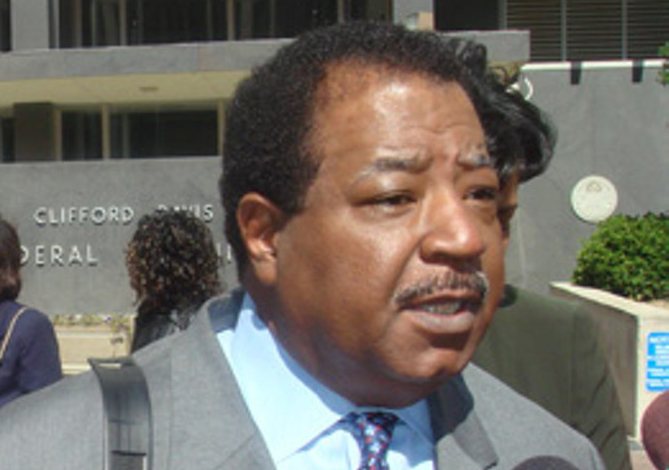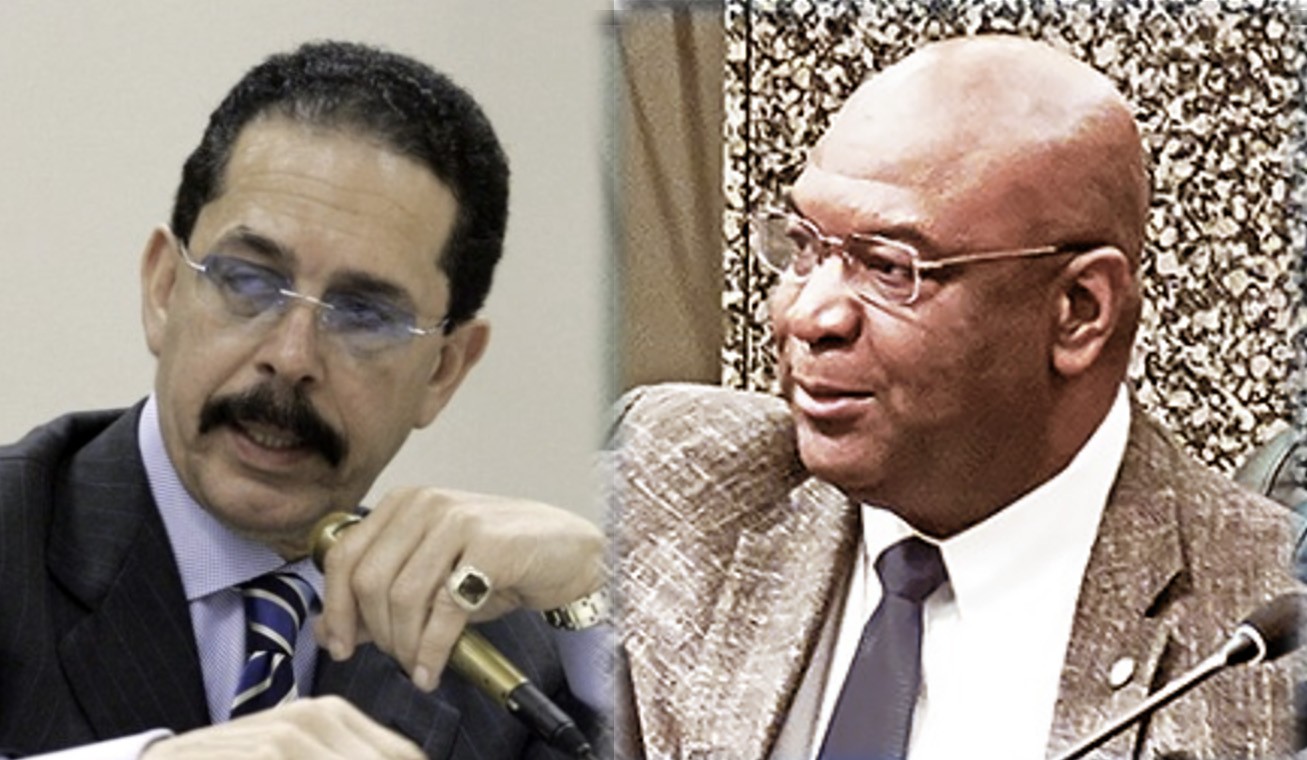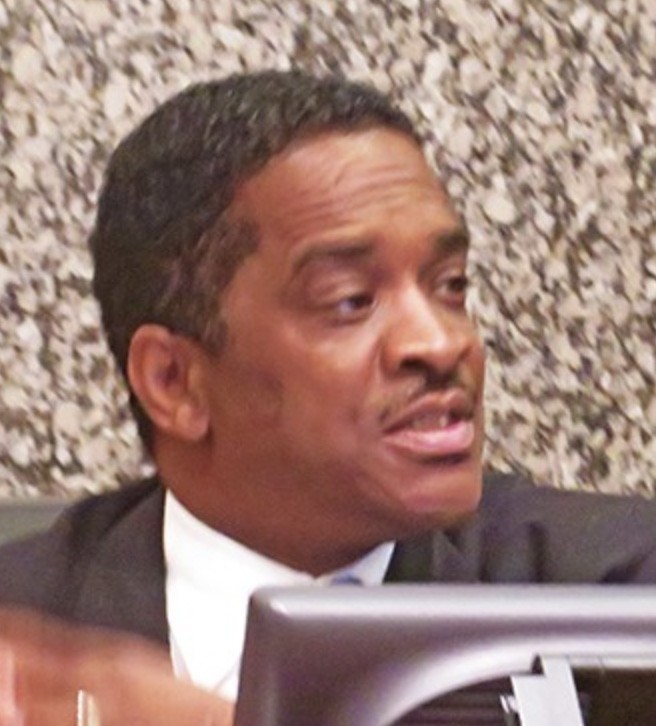Prosecutor Procedural
If there is a sub-genre of that literary favorite, the police procedural, it might be called the prosecutor procedural, and Operation Tennessee Waltz would be a bestseller.
The final chapter was written last week when Michael Hooks Jr. was sentenced to 30 days in jail. Hooks’ attorney, Glen Reid, said his client was not part of Tennessee Waltz, and prosecutor Tim DiScenza agreed. But Hooks had the misfortune to be part of a small-time corruption case involving bogus invoices to Shelby County Juvenile Court, which led, through his partners Tim Willis and Barry Myers, to Roscoe Dixon, John Ford, and the FBI undercover operation that came to be known as Tennessee Waltz.
Like any good novel, that story had money, deception, corrupt power, famous names, bag men, lucky breaks, moral ambiguity, courtroom suspense, and the threat of physical violence. It began late in 2002 and consumed the resources of the FBI, federal courts, prosecutors, and the media for more than five years. The timeline that follows is based on trial testimony, transcripts of taped conversations, and interviews with prosecutors, investigators, and defense attorneys conducted after the investigation became public on May 26, 2005.
2000-2001: Tim Willis and Barry Myers, politically ambitious young men, meet while working on a campaign. Myers, a Roscoe Dixon protégé wise to the ways of state legislators, tells him, “You need to be able to take care of people.” Two more young men on the make, Shelby County administrator Calvin Williams and Darrell Catron, get Myers a job at Juvenile Court. Catron and Willis devise an embezzlement scheme involving bogus invoices.
2002: The FBI and agent Brian Burns begin an investigation of Juvenile Court. Federal agencies, while not without their own politics, are considered, by unwritten agreement, less political than elected district attorney generals such as Shelby County D.A. Bill Gibbons. Willis, who already has a Mississippi conviction for credit-card fraud, compounds his problems by lying to the grand jury.
January and February 2003: Willis and Catron agree to cooperate with the government. Catron pleads guilty to embezzlement, but his sentencing is postponed. Willis is not charged but instead tells investigators about corruption in local and state government. His information is deemed credible, and the FBI pays him $34,000 in 2003 to tape conversations with public officials. He records incriminating conversations with Myers and Williams about Dixon, John Ford, Kathryn Bowers, Michael Hooks Sr., and others.
Summer 2003: The FBI’s interest shifts from Juvenile Court to the state legislature in Nashville. Agents entrust Willis to offer Dixon a payoff for influencing a children’s dental contract. As is the case with all undercover witnesses, they are gambling that he will not betray them. They are especially worried about Ford, who is believed to have connections nearly everywhere. Local FBI agents come up with the name Tennessee Waltz. The proposal is vetted in Washington, D.C., with the FBI’s public corruption unit, which must approve undercovers, and the U.S. Attorney General’s Office, which must approve wiretaps. A deputy of Attorney General John Ashcroft, a Republican from Missouri, gives the approval.
Fall 2003: The FBI designates retired agent Joe Carroll and a young African-American undercover specialist known as L.C. McNeil to set up a fake company called E-Cycle Management to try to get legislation helping it do business in Tennessee.
2004: Willis, now making $77,000 a year plus expenses, tells state lawmakers he is lobbying for E-Cycle and has “a little discretionary money to take care of folks.” In February, he makes a videotaped payment to Dixon. Willis introduces lawmakers to Carroll, who is using the fake name Joe Carson. Ironically, “Joe Carson” has done previous well-publicized FBI undercovers of public corruption in other states within the last 10 years. By May, Dixon is suspicious of the large amounts of money E-Cycle is throwing around but apparently does not Google “Joe Carson” and “FBI agent.” McNeil, meanwhile, is getting a wealth of incriminating information from taped conversations with the talkative Myers. Near the end of the legislative session, E-Cycle has Dixon withdraw its bill.
January 2005: Carson is working hard on Chattanooga senator Ward Crutchfield and his bag man, Charles Love, while McNeil has forged a friendship with Ford. McNeil is also taping Michael Hooks Sr., who is eager to make money off of Shelby County contracts. Dixon, meanwhile, has quit the legislature to take a full-time job as a top assistant to Shelby County mayor A C Wharton, whose past campaigns he managed. This opens new doors but also complicates matters for the FBI.
Spring 2005: Ford is taped several times taking payoffs from McNeil. In a meeting at his office in Memphis, a suspicious Ford threatens to shoot Willis, who is terrified. Prosecutors and the FBI decide they must wrap up the investigation for two reasons. One, they fear it will be exposed and someone will get hurt; two, they can’t allow E-Cycle’s legislation to come to a floor vote and they are running out of excuses. On May 13th, agent Mark Jackson gives Dixon a last chance to confess, but he sticks to his lies. A few days later, prosecutors and the FBI set a date of May 26th for top-secret indictments of Dixon, Ford, Myers, Bowers, Chris Newton, Crutchfield, and Love. On May 25th, they get one last surprise: Harold Ford Jr. announces he is running for Senate, throwing an unintended political theme and Ford angle into the story, which will get national media attention.
Summer and Fall 2005: The dominoes begin to fall. Newton, Myers, and Love plead guilty. Myers will provide key testimony against Dixon and Bowers. Love will incriminate Crutchfield. Williams, who is not named in the May indictment, insists that he is writing a tell-all book about Willis and political corruption in Shelby County.
2006: Dixon goes on trial in June. Jurors hear several hours of tapes and testimony on the stand from Myers and Willis, whose credibility is not shaken by Dixon’s attorney. Dixon himself testifies and admits that he took payments. His alibi is destroyed by Tim DiScenza, whose courtroom presentation spares none of the dirty details on the tapes. Dixon is convicted and sentenced to 63 months in prison. The government sends a message that it is willing, even eager, to take more cases to trial. In August, Michael Hooks Sr. pleads guilty to bribery, leaving an arsenal of incriminating tapes forever out of the public view. The nephew of civil rights legend Dr. Benjamin Hooks is sentenced to 26 months in prison.
January 2007: Williams goes to trial. Willis testifies against him. Like Dixon, Williams takes the stand in his own defense. And, like Dixon, he is convicted of extortion in connection with a grant for a community program in Memphis. He is sentenced to 33 months in prison.
June 2007: Ford goes to trial. The key witnesses against him are Willis and his old “friend” McNeil. But Ford’s biggest problem is the collection of videotapes that show him taking a series of clandestine $10,000 payments. He is convicted on one count of extortion and sentenced to 66 months in prison. Later in 2007, Crutchfield and Bowers change their pleas to guilty.
Epilogue 2008: Michael Hooks Jr. is expected to serve his 30 days, probably in a halfway house, later this year. His father is in the federal prison in Montgomery, Alabama. Ford is supposed to report to prison in Texas on April 28th. Dixon is in a federal prison in Louisiana. Myers is in prison in Yazoo City, Mississippi. Williams is in prison in Forrest City, Arkansas. Bowers will begin serving her 16-month prison term in June. Crutchfield received home confinement instead of prison time due to health considerations. Newton has served his prison sentence. Catron did not testify at any trials and received probation.
FBI agent Brian Burns was reassigned to Buffalo, New York. His partner, Mark Jackson, was reassigned to Los Angeles. The government says “McNeil” is working on another undercover assignment at an undisclosed location. The government will not say where Willis is or what he is doing.
— John Branston
No Robin Hoods Here
On the night in December 2006 before he was arrested and charged with felonious graft in relation to his service as a Memphis city councilman, Rickey Peete was hanging out with a tableful of reporters and fellow pols in the Hard Rock Café on Beale Street. There had been a show-and-tell featuring Mayor Willie Herenton and Joe Frazier, the former heavyweight champ who was Herenton’s scheduled “opponent” in the next night’s charity boxing match.
A mayor’s race would be coming up within months, and, at Peete’s table, the subject easily elided from one species of contenders into another. The councilman began confiding his sense of what he saw as virtually unlimited political prospects not only for himself but for members of his family.
“Just my last name alone is practically a guarantee of victory in Memphis,” the genial Peete said, his infectious Cheshire grin expanding to Brobdingnabian proportions.
Wrong.
Within hours, Peete would be in handcuffs, charged with vote-selling and bribery and on his way to being a two-time loser in federal court, his good name and political career (both painfully rehabilitated after an 1988 bust for extorting money from a developer) ruined anew, and with his very liberty soon to expire.
The federal sting that nailed Peete was called Operation Main Street Sweeper. It was something like a second cousin to the more ballyhooed Tennessee Waltz operation that not long before had baited an assortment of corruptible officials with offers of swag, thereby sweeping in political offenders across the breadth of the state.
One of those had been Kathryn Bowers, who, at the time she was nabbed by the FBI — mid-session in Nashville in May 2005 — was a freshly elected state senator who doubled as chairman of the Shelby County Democratic Party. Less than a month before her arrest, she had been gloating on her triumph over party adversaries and the enlarged prospects that had come with her elevation from the state House of Representatives to the more elite senior body.
Within two years, Bowers was an emotional and physical wreck, under a doctor’s care and forced to cop a plea after initial protestations of innocence. “I ask for forgiveness of my bad decisions of receiving money in an inappropriate manner” was the awkward, curiously euphemistic mea culpa she managed to sputter out in February of this year, when she was being sentenced by U.S. district judge Daniel Breen to a 16-month prison term, followed by two years’ probation.
With the possible exception of former state senator John Ford, a millionaire who was already beleaguered on a number of graft fronts at the time that the Tennessee Waltz trap was sprung, the other sting victims (if that’s the right noun) were — by their own lights at least — riding high at the time they were busted.
Roscoe Dixon, the former state senator whose seat Bowers had filled, had vacated it to take a well-paying job as an assistant to Shelby County mayor A C Wharton. And he had spent much of the spring of 2005 in near-successful efforts to get the Shelby County Commission to appoint his erstwhile legislative aide-de-camp, one Barry Myers, to either the state Senate or the state House of Representatives.
The hard-working chairman of that selfsame County Commission for the 2004-’05 term was Michael Hooks Sr. Honorably rehabbed from a drug offense some years back, Hooks had just been a legitimate ballot contender himself for the state Senate seat won by Bowers. His son, Michael Hooks Jr., a respected member of the Memphis school board, was an aspiring actor who, in that same spring of 2005, appeared in a climactic speaking role in the surprise Indie hit Hustle & Flow.
All of the above hopefuls, along with the long revered state senator Ward Crutchfield of Chattanooga and assorted other members of state and local government, would end up under arrest and subject to trial. Most would cop pleas, and all would receive sentences of one kind or another. Those who, like Senator Ford and the hapless Dixon, dared to brazen it out and actually stand trial ended up as big-time losers, getting significant time.
With the exceptions of state representative Chris Newton, a Newport Republican widely regarded by his GOP mates in the legislature as a Democratic fellow traveler, all of those nabbed in the various stings orchestrated by the FBI and the local U.S. Attorney’s Office from 2005 to 2007 were either nominal or highly active Democrats.
A late exception was former county commissioner Bruce Thompson, a Republican who came under investigation in late 2007 for improprieties connected with his brokering a school construction contract. The case against Thompson, however, was not based on a sting per se. The crime, such as it was, had sprung from Thompson’s own machinations, and that fact, as much as his political persuasion, made the ex-commissioner’s legal situation unique.
Numerous local Democrats profess to smell a fish regarding these operations, but it’s difficult to get any, save the indicted themselves, to go on record with their suspicions.
In all fairness, testimony at several of the Tennessee Waltz trials indicated at least perfunctory attempts to recruit Republican legislators. And the audio and video introduced in evidence seemed to confirm that the FBI agents posing as computer entrepreneurs from a company called “E-Cycle” invited GOP members to the “receptions” that were, in reality, fishing expeditions.
To be sure, one or two Republicans got close enough at least to sniff from the bucketloads of cash made available to high-class helpers. State senator Jeff Miller of Knoxville opted out of reelection and decided to add “former” to his title not long after he belatedly declared $1,000 worth of E-Cycle cash as a “campaign contribution.” (And two indictees in recent years — former County Commission administrator Calvin Williams and ex-Juvenile Court aide Darrell Catron — were once regarded by the Shelby County Republican Party as prize recruits from the African-American community.)
The fact remains that the chief indictees of the Tennessee Waltz investigation were disproportionately Democratic, disproportionately black, and disproportionately from Memphis. They also seemed to be disproportionately from that part of the traditional Democratic apparatus known loosely as the “Ford organization.”
There are several ways to construe this fact, but, for comparison’s sake, two of them may be stated as: 1) Such folk were more corruptible than others involved with the trade of politics; or 2) pure and simply, they were targeted. Both these scenarios have their believers. And neither, alas, is subject to definite proof.
It is a fact, attributable to pure coincidence perhaps, that there was a lengthy hiatus in prosecutions of this sort, at least locally, during the two terms of Bill Clinton’s presidency. But during the Republican administrations that came immediately before and, as we have seen, immediately after, prominent Democrats were on the mark statewide.
No doubt, Knoxville bankers Jake and C.H. Butcher were shady operators back in 1983. They were also important components of the Tennessee Democrats’ party-building efforts. Ditto with Memphis congressman Harold Ford (“Senior,” as he has come to be known following the celebrity of his namesake son and congressional successor). Call it another coincidence, but Ford and several fellow defendants who had been connected with the Butchers were acquitted of bank fraud by a rural West Tennessee jury in the first year of the Clinton administration. Did Dan Clancy, the holdover prosecutor and a self-declared Democrat, let up on the throttle (even if only unconsciously), or had the government’s case always been as shockingly weak as it seemed to be? This, too, is a case of you-flips-your-coin-and-you-takes-your-choice.
But even if political bias, at least of the conscious variety, is discarded as a motive in the prosecution of politicians these last several years, there is another factor at work: Most of those indicted and convicted of accepting money for votes or for otherwise boondoggling the public trust (Crutchfield, the Butchers, and Thompson are clear exceptions) stem from working-class origins.
These were not the high-flying and well-protected financial scammers whose schemes, toting up in the stratospheric millions, are often too Byzantine for the public or juries or prosecutors even to comprehend, much less punish. These are basically blue-collar criminals doing low-level, white-collar crimes.
Most, before achieving office, were unused to the ways and mores of legitimately acquired wealth but came to occupy positions that exposed them on a daily basis to influential and privileged people or institutions on whose behalf they were routinely asked to intercede. Familiarity can breed, besides contempt, simple covetousness.
The truly sad fact is that many of those netted in the stings of recent years went down for what, in the scheme of things, amounted to nickels and dimes. But the sadder reality — the bottom line, as it were — is that nobody made them do it. And none of them answered to the name of Robin Hood.
— Jackson Baker

 JB
JB  JB
JB 
